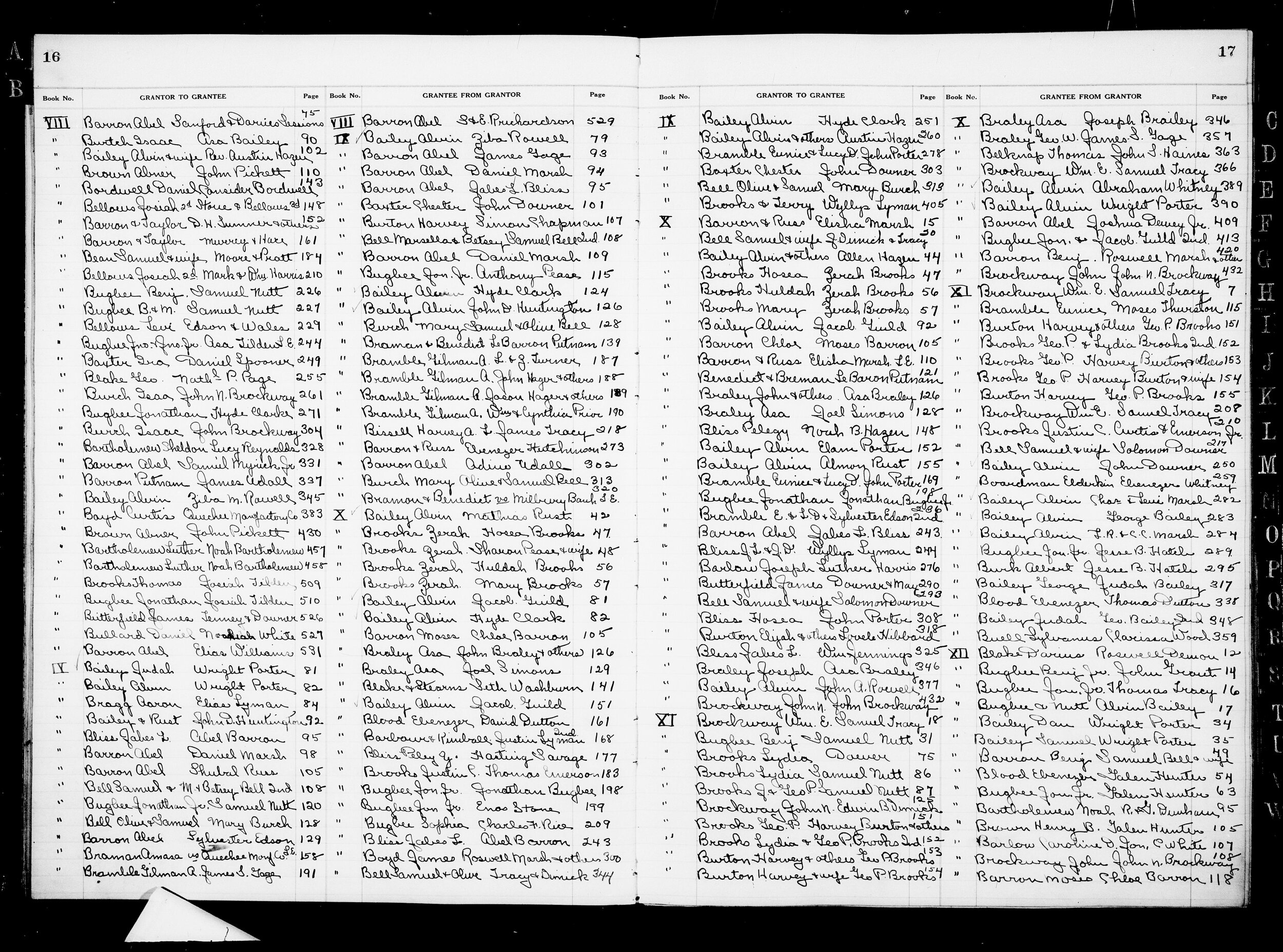Solve Your Genealogy Brick Wall: 10 Ways To Widen Your Research Net
*This post may have affiliate links, which means I may receive commissions if you choose to purchase through links I provide (at no extra cost to you). All opinions remain my own.
Brick walls are a given at some point in your genealogy research. In this post, I’ll share some ideas of how to switch up how and where you’re looking so you can get past your roadblocks.
But first, a quick recap. What is a genealogy brick wall? It’s simply someone who is a real challenge to research, and you get stuck on.
In my past couple of posts, I’ve talked about some brick wall buster strategies – reviewing what you know, and how to evaluate the information you have.
Another tip for getting around a wall is doing enough investigation and collecting ample information.
This doesn’t mean trying to track down every single thing ever created on your ancestor. That’s unrealistic. But you should try to seek out a variety of sources and get more creative in where you look.
However, sometimes our brick walls are created because we haven’t looked at enough different type of resources. Using a genealogy records checklist can help you see which records you already have to get a better sense of what other types of resources you should be on the lookout for.
We can get stuck in the rut of only using the big database websites. Now, I'm not knocking Ancestry and the other large genealogy websites. They are amazing and have a lot to offer. Everything is in one place. You can make a family tree and attach sources. You can make huge headway, especially at the start of delving into someone.
But if you only rely on those few places, you might have a harder time getting past these obstacles.
To break that wall, you have to consult less typical, and perhaps less convenient places. You also have to be more inventive in your search techniques.
Luckily, there are many genealogy resources out there for us, both online and offline! One of these may be the key to solving your problem.
Related posts:
How To Find And Use The Hidden Clues In Obituaries
10 ways to expand your genealogy research to solve brick walls
What are some of the ways to broaden where and how you are searching?
Here are 10 ideas of new places and methods to try.
1) Explore image-only database collections. It’s easy to get comfortable using only the indexed collections on FamilySearch and other sites, but you should also browse the image-only collections. These have a wealth of information and are underutilized. I’ve found land and probate records that I never would have by only using the searchable collections.
How to find the image-only collections varies by the website. On FamilySearch, one way to find them is to go to Search then Records, then click on the map for the place. You’ll then get a new page with a list of Indexed Historical Records results, then Image-Only Historical Collections below that. Scroll through the results and browse the relevant collections.
Another way is to go to Search - Catalog - then enter the place and choose a collection. Often it will direct you to another link if the collection is indexed. If you see a camera, though, there are images you can look at.
But never fear, some of these collections have indexes within them even though they aren’t searchable.
What does that mean? Sometimes there is a separate index in the original sources, but the images themselves haven’t been indexed. That means you can pull up something like a deed book and review the grantor and grantee indexes that are in the original, scanned books. You won’t need to browse every page for your family.
2) Get offline. Make the most of genealogical and historical societies, public libraries, and genealogy and other libraries. Most genealogy resources haven’t been digitized, so there are a ton of offline places to dig into.
Try WorldCat, a catalog for libraries all over the world, to see what print books may be available. You may be able to request something through an interlibrary loan.
PERSI (the Periodical Source Index) is another handy tool. It’s a subject index to genealogy and history articles in periodicals. You can search PERSI for free through Find My Past and order any relevant articles.
3) Recheck items to see if they have been digitized. The large genealogy websites are digitizing things like crazy, even if it’s still only a fraction of the documents out there. If you knew of a book or other collection that wasn’t microfilmed, or was microfilmed but not online, check back to see if it’s now digitized.
4) Try lesser-used records. We often tend to stick with the most obvious types of records, like censuses and vital records. Obviously, these are essential documents to seek out. But if you get stuck, try less common documents like:
church newsletters
mortality schedules
funeral home records
military cemetery records
newspaper probate notices
annulment records
social security applications
cemetery plat maps
Yes, these types of documents will take more time to dig up but may be well worth the effort of seeking out.
5) Use less typical websites. There are a lot of fabulous sites with transcriptions, extracts, or links to valuable resources.
For example, MesAieux.com lists births, marriages, and deaths for Quebec genealogy. The Ancestor Hunt has tons of links to newspapers, vital records, yearbooks, and other great resources.
Of course, Cyndi’s List is another great place for links for every genealogy topic under the sun, and it’s constantly being updated. If you haven’t used it for a while, check to see if there are any new and helpful links for you.
6) Examine collateral relatives. When you get stuck on an ancestor, try going sideways and researching their siblings and children. If you’re seeking information for a woman, try studying her husband for more clues.
7) Scrutinize the FAN Club. Like collateral relatives, investigating friends, associates, and neighbors can help break brick walls. Sometimes you have to consider a community at large to find answers. These people participated in the same events your ancestor did. They went to school and church together. They were witnesses to your ancestors’ marriages and godparents to their kids. One of them may lead you to your answer.
8) Crowdsource your questions. Social media is an amazing tool. Facebook groups and Instagram are great places to get help from fellow genealogy enthusiasts. You can get help with ideas of where to search, reading bad writing, and translating documents. You can also meet people researching the same surnames.
9) Learn the basics about the location and its history. Take a step back and see the bigger picture for the place your ancestor lived. When did vital record registration begin? You may be seeking something that doesn’t exist. Did the borders change? You may be looking in the wrong county.
10) Broaden your search techniques.
Search by initials, middle names, abbreviations, and nicknames. You never know what name variation it was published under.
For women, try checking for their maiden name as well if you know it.
Play with different spelling variations for first and last names.
Don’t only look in the exact place (town/county) your ancestor lived. You can find unexpected resources if you search a broader region. For instance, sometimes newspapers reported for a wide geographic area. I’ve found articles about my family in neighboring states.
Page through collections. If you can’t find someone but are certain they’re there, they may be indexed incorrectly. Try browsing and you might come across them.
Bonus idea: Your mindset. This may sound a little woo woo but stick with me. Being patient and hopeful can go a long way in helping you stay persistent in your pursuit of answers. I’m not talking about affirmations and manifestation here (though I’m not against those things), but simply staying optimistic.
You may be trying to break through this obstacle for months, if not years. Remaining positive and focused enough to keep chipping away at it is important if you ever hope to solve that problem.
Related posts:
5 Things To Look For In Probate Records To Help Trace Your Ancestors
11 Smart Strategies For Searching For Ancestors That Changed Their Name
How Setting Genealogy Goals Makes You A Better Researcher
Final thoughts
Exploring a variety of genealogy resources and search methods can be a great way to get through your genealogy roadblocks.
What are some of your brick wall strategies? Share in the comments!



